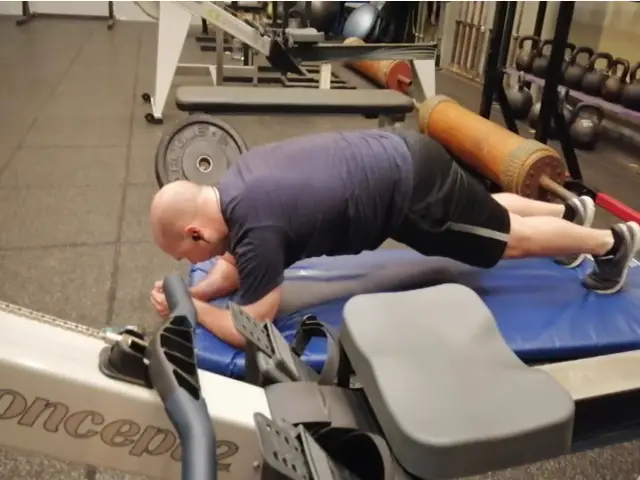Good Reasons To Exercise Daily

Here are 12 – really – good reasons why we should exercise daily… as often as possible!
We all know that exercise is good for your health. But it is good to remember how beneficial it is, especially when you discover unexpected benefits!
Sleep
Exercise improves the quality and duration of sleep and makes it easier to fall asleep.
This could be due either to the fact that exercise helps to relax muscles, or to reduce stress or warm the body. Similarly, regular exercise could reduce feelings of fatigue and increase energy levels. The mechanisms involved are still unknown.
Gallstones
Active women are 30% less likely to have surgery for gallstones than sedentary women. Why women? Why women? Because they are twice as at risk as men: replacement hormones, anovulants, excess estrogens during pregnancy seem to increase cholesterol levels in the bile and decrease gallbladder movement, which increases the risk of gallstones forming.
Cancer
In 2006, the National Cancer Institute published the results of two prospective studies suggesting that regular physical activity in the months following colorectal cancer treatment reduces the risk of recurrence and mortality.
A study published in the American Journal of Epidemiology in 2008 and conducted with 80,000 Japanese people over 10 years showed that regular physical activity reduces the risk of colon, liver, pancreas and stomach cancer. The protective effect was even more present in people with a healthy weight. Researchers seem to point out that exercise stimulates the body’s natural defence system, the immune system, and causes desirable hormonal changes.
In the Journal of Clinical Oncology (August 2008), it was reported that more than a dozen studies conducted over the past 20 years have shown that exercise can reduce breast cancer risk by up to 40%, while other research has shown that the benefits of exercise are as high or higher among breast cancer survivors.
Exercise would also help you regain your strength, eat, sleep and reduce stress – all conditions you need to optimize when fighting cancer.
Diverticular diseases
The protective effect against diverticular diseases (mainly hernias of the intestinal mucosa) would be greater with vigorous exercise such as jogging and running rather than with moderate physical activity such as walking.
Arthritis
Regular moderate exercise could reduce swelling and joint pain in people with arthritis. Similarly, physical activity helps to maintain a healthy weight and therefore reduces the risk of suffering from arthritis in the knees.
Anxiety and depression
Exercise may release natural opiates that reduce symptoms of anxiety or depression. And always at the brain level, staying in good physical shape can help offset changes, such as decreased cognitive function, that normally occur with aging.
Cardiac diseases
Exercise increases the oxygen supply to the heart muscle by increasing the expansion of the arteries and creating other minivessels. Exercise may also prevent blood clots from forming and/or disintegrating. A study conducted at the Montreal Heart Institute in 2008, which followed 14,000 patients with previous cardiac procedures for nearly 15 years, clearly showed that the risk of death was 42% higher among sedentary people. Sedentary people were 1.6 times more likely to die from heart disease than physically active people.
Blood pressure
If blood pressure is already high or normal to high, regular low to moderate exercise can help lower it. If blood pressure is normal, regular exercise can help maintain it. Studies show that a decrease in blood pressure of only 2 to 3 mmHg reduces the risk of high blood pressure by 25 to 50%.
If blood pressure is already high or normal to high, regular low to moderate exercise can help lower it. If blood pressure is normal, regular exercise can help maintain it. Studies show that a decrease in blood pressure of only 2 to 3 mmHg reduces the risk of high blood pressure by 25 to 50%.

Diabetes
The more exercise there is, the lower the risk of diabetes, especially if there are other risk factors, such as excess weight, hypertension or a family history of diabetes. On the other hand, in diabetes, the liver tends to become engorged in fat, which increases the risk of cirrhosis and liver cancer, as well as disrupting metabolism and increasing blood lipid levels. And a study at Johns Hopkins Hospital showed that regular physical activity resulted in a decrease in liver fat.
Falls and fractures
With age, muscle loss is accelerated and with it, the loss of the ability to produce reflex movements that prevent us from falling and the weakening of posture. Exercise can prevent falls and loss of balance by improving muscle strength, balance, gait and reaction time.
Increase in prostate size
This is a fact that occurs in old age, in fact 50% of men 60 years of age and older and nearly 90% of men over 70 years of age suffer from some symptoms due to increased prostate size. It appears that regular exercise can reduce the risk of benign prostatic hyperplasia by 25%.
Osteoporosis
Exercise, especially strength training, running, tennis or running sports, can increase bone density by stimulating the binding of calcium to the bones. In fact, regular training allows the bone to gain 1 to 2% density. In other words, fracture resistance is multiplied by 10: 2% gain in bone density equals 20% increase in impact resistance. Also, calcium and vitamin D supplements will have a greater impact on bone health if you exercise regularly.
So do these 12 good reasons make you want to move?
Like!! I blog frequently and I really thank you for your content. The article has truly peaked my interest.
Some truly interesting info , well written and generally user pleasant.
I appreciate your piece of work, thanks for all the informative posts.